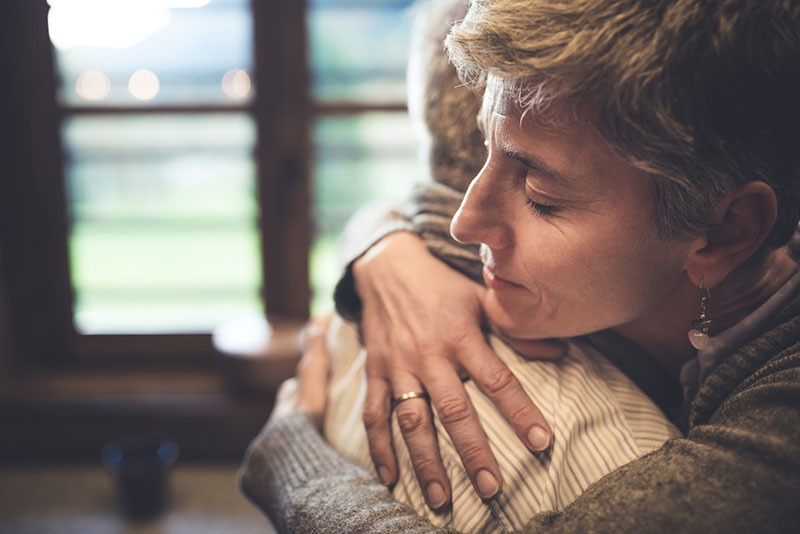
When a loved one passes there are many details that need to be taken care of, and having a timeline can help.
When a loved one passes away, there are a number of administrative tasks that must be completed in a timely manner. Knowing where to begin and what to do can be challenging while also dealing with grief.
To help navigate this time, our aging care experts have put together the following helpful guide so you will know specifically what needs to be taken care of when someone you love dies.
First Steps: Immediately
- Acquire a declaration of death. Depending on the person’s location at the time of passing, this may be supplied by a hospice nurse, or staff in a hospital or long-term care facility. If you’re taking care of the individual at home without the support of medical experts, call 911. EMTs will provide transport to the emergency room for a legal pronouncement of death.
- Notify friends and family. There are plenty of approaches to make this happen, depending on what’s most comfortable for you. You might choose to personally contact each individual through a telephone call, email, or in-person visit. You may want to ask for assistance, assigning others to contact a particular set of people (i.e., faith community members, friends from organizations the person was involved in, neighbors, etc.) to aid in spreading the news. Or perhaps you may choose to post on social media, so you can make one announcement that reaches everybody in the person’s circle of acquaintances.
- Organize a gathering with immediate family members to discuss funeral plans. If the senior had prepaid/preplanned final arrangements, review those plans with immediate family. If not, you can begin the discussion about preliminary details: which funeral home you’d prefer to work with, the budget available, and any high-level details that you want to be certain to include.
Step Two: Within a Couple Days of Passing Away
- Schedule funeral arrangements. Using the suggestions from your initial family meeting, meet with the funeral home staff to sort out the details:
- Will the senior be buried or cremated?
- Which type of urn or tombstone will you want?
- Where will the funeral or memorial service be held?
- Who will write the obituary? Serve as pallbearers? Speak at the service? Write thank-you notes? Arrange for a post-funeral gathering?
- Make sure the residence and any valuables are secure. Lock up any cash, jewelry, or other valuable items, along with the person’s home and vehicle. Additionally, if the person had any pets, confirm who is going to take over ownership – making sure they receive lots of attention and care, as they will be impacted by the loss and changes too.
- Forward mail. The post office can set up a forwarding order so the person’s mail will be sent straight to the assigned person taking care of their affairs. The designated person will also want to monitor mail to stop subscriptions and services, manage any bills, etc.
Step Three: Two Weeks After Passing
- Pull together paperwork. Ask for ten certified copies of the death certificate, which will be essential to close bank accounts, file insurance claims, and more. The funeral home can assist you with this, or you can obtain them yourself through the state vital records office. You will also need to find the person’s will and determine who the executor is.
- Talk with an attorney and CPA. Legal counsel, chosen by the executor, will ease the task of settling the estate and distributing possessions. A CPA can assist with filing a final tax return on the person’s behalf.
- Notify other businesses. The funeral home should speak to the Social Security Administration, but you’ll want to verify this. Also, if the person had a life insurance policy, now is the time to file a claim. Check with the senior’s bank(s), stockbrokers, and financial advisers to find out the beneficiary of the accounts and supply a copy of the death certificate. You will also need to close any credit card accounts and contact the DMV to cancel their driver’s license.
When a loved one passes away, there is frequently a surviving spouse who needs support and care. Compassionate Nursing Services, a provider of Oakville senior home care with home care services throughout the surrounding areas, is here to help. Our compassionate caregivers can help with personal care needs, provide companionship to ease loneliness, plan and prepare nourishing meals, and so much more. We can help so that you can focus on the personal and legal details following a loved one’s death. Give us a call at 314-432-4312 to learn more about our home care services.
